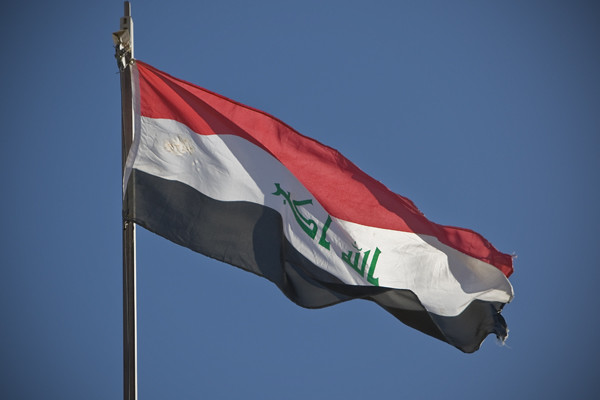Will Iraq’s Silent Majority Make Itself Heard in the Next Election?

This week marks the one-year anniversary of Iraq’s Tishreen Revolution, the pro-democracy movement that brought down former Prime Minister Adel Abdul-Mahdi after his crackdown on popular protests killed more than 600 Iraqis. The protestors’ demands have been simple: hold government officials accountable and end the systemic corruption that stymies Iraq’s development, democracy and sovereignty. One year later and with a new, more reform-minded government in place, the movement must translate civic activism into participation in the 2021 parliamentary elections.
2018 saw low turnout for Iraq’s parliamentary elections, with just 44 percent of the electorate participating and many Iraqis boycotting the election, signaling dissatisfaction with the political class and the democratic process generally. It took more than five months and ultimately brought Prime Minister Adel Abdul-Mahdi to power, who was not only perceived as ineffectual, but lacked the political support needed to implement reforms.
Security forces under Mahdi’s authority violently clamped down on protestors, raising fresh fears for the country’s already-shaky democratic development. The scale of the public outcry led Mahdi to step down, and after lengthy negotiations and two failed attempts to designate Abdul-Mahdi’s replacement, Mustafa al Kadhimi was confirmed as Iraq’s new prime minister.
Prime Minister Kadhimi has strongly supported the protest movement, and his commitment to hold an early election based on a new electoral system and prosecute the perpetrators of violence against the movement represent major victories for the movement. The challenge is now to inspire both the protestors and the silent majority who did not go to the polls in 2018 to vote next year.
In the 2018 parliamentary elections, calls to boycott the elections were party-led to discourage disaffected opponents from mobilizing and expressing what would effectively amount to a protest vote against the party establishment. The boycott ultimately suppressed dissenting votes and, in the process, the ability of alternative voices to be heard: voices that are frustrated with government performance, political negotiations entrenching sectarian quotas and facilitating corruption. Worse, without a constitutionally mandated minimum turnout threshold, the boycott ultimately validated an election that entrenched the political class.
Although hundreds of thousands of Iraqis have participated in the Tishreen Revolution, there is still a silent majority that has not joined the street even though they sympathize with the movement. Their participation in the 2021 elections will be crucial to Iraq’s democratic future.
The activists behind the Tishreen Revolution are working hard to translate those principles into political change. Despite systemic assassinations and kidnapping campaigns of protest leaders by nefarious militia elements, activists have persisted and begun organizing to pursue their political ambitions for change. In this past year, the movement has forced a reckoning amongst the political class that Iraq’s young people will not stand by and watch their future disintegrate – even in the face of violence from outlaw militias and, under the previous government, overzealous security forces. Political blocs have splintered between, on the one hand, a moderate, hardline and populist “old guard” and the rising stars of the protest movement – a trend that is especially prevalent in Iraq’s western provinces, where activists and other young politicians are able to leverage disaffection in the southern provinces or post-ISIS war reconstruction in western and central provinces to improve conditions. The choices in Iraqi Kurdistan are more limited given the firm control of establishment political parties.
Increased political competition is a good sign and could help drive turnout next year. But fundamentally, what is the incentive for Iraq’s silent majority to vote this time around? And how can activists make the case that their vote matters? Without the participation of reform-minded Iraqis, entrenched political interests will continue to fester and the prospect of a democratic future will grow more remote. This point must be reinforced by political and civic leaders again and again.
The government must give all Iraqis faith that their vote will count. This will require the election commission to take the first steps in tackling electoral fraud and ensuring rogue militias do not prevent citizens from exercising their right to vote. Additionally, the government and the pro-democracy movement must invest in civic education and enhanced communications strategies to make the case to the Iraqi people for how – and why – they must become engaged in the political life of their country. Here, civil society has a key role to play. If they succeed, 2021 could herald a new start for Iraq’s beleaguered democracy.
Top